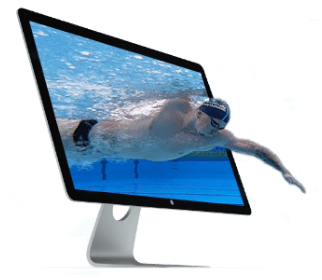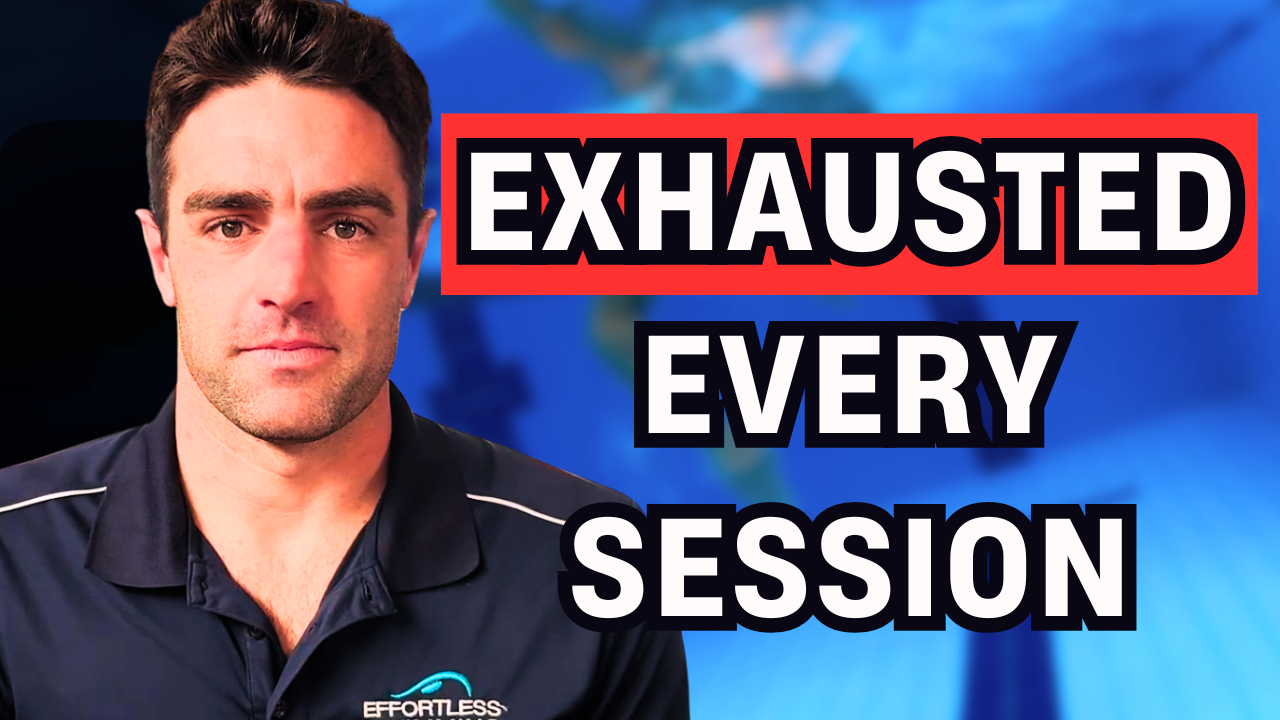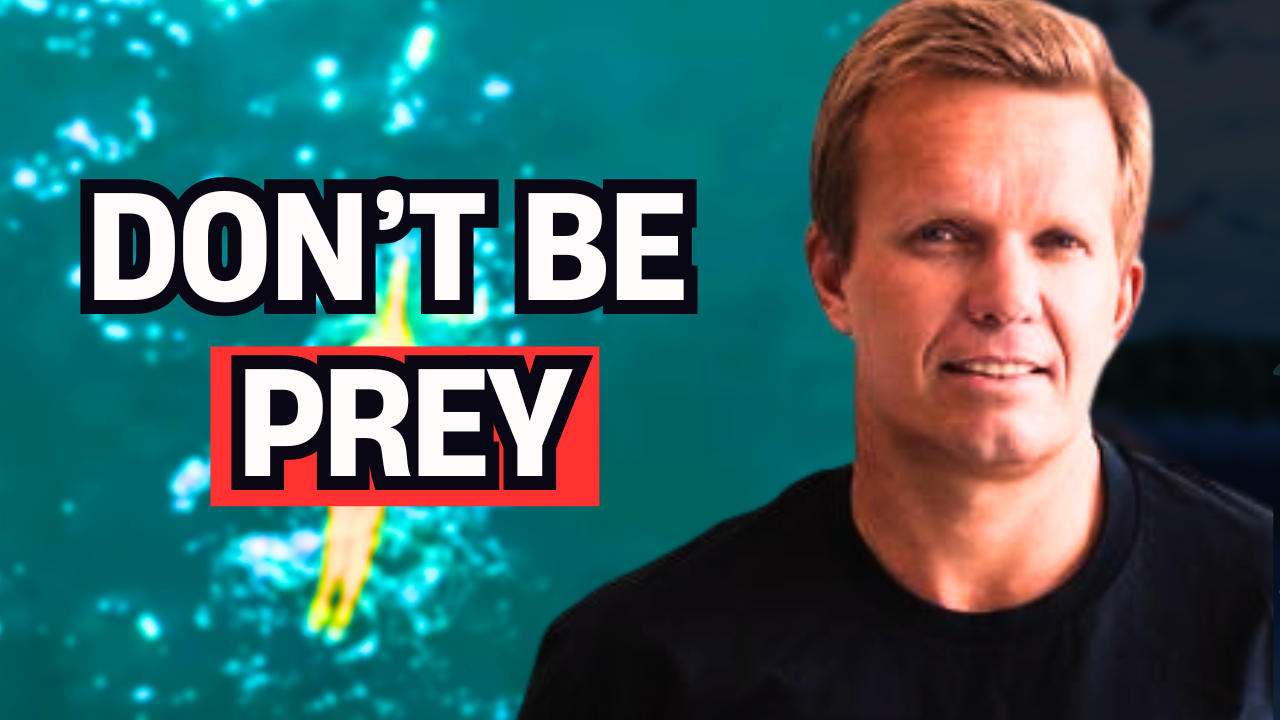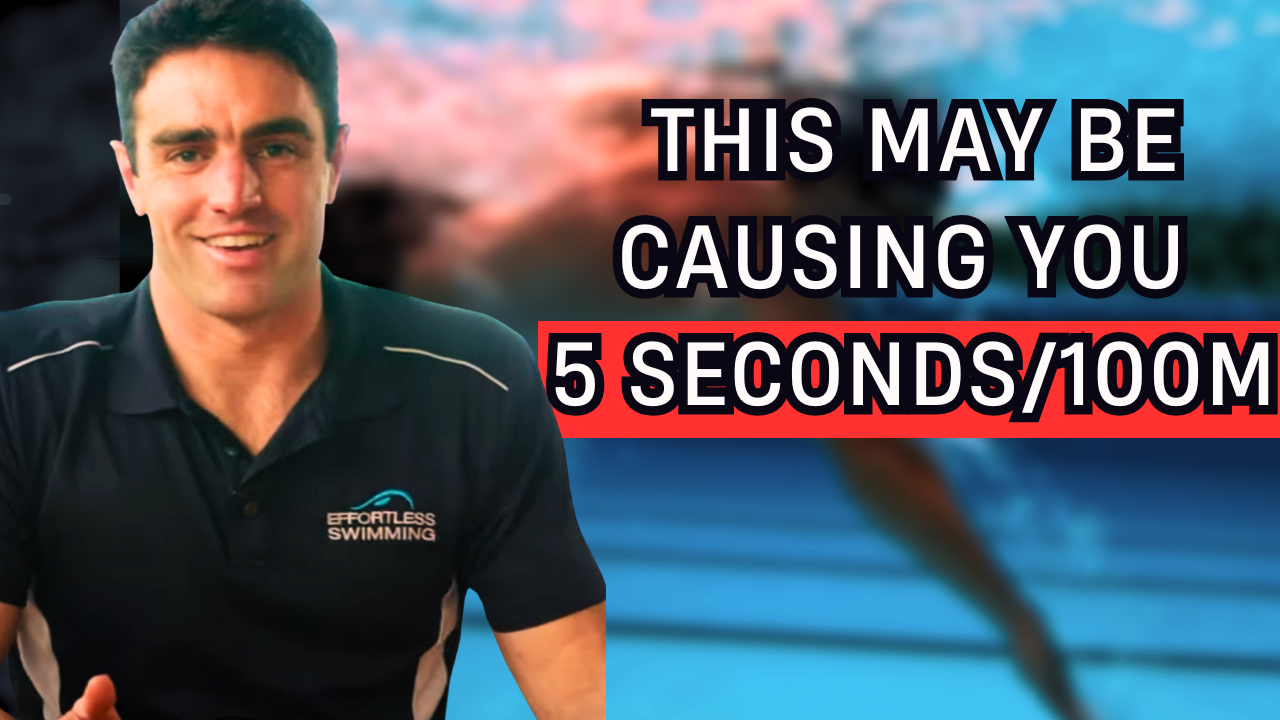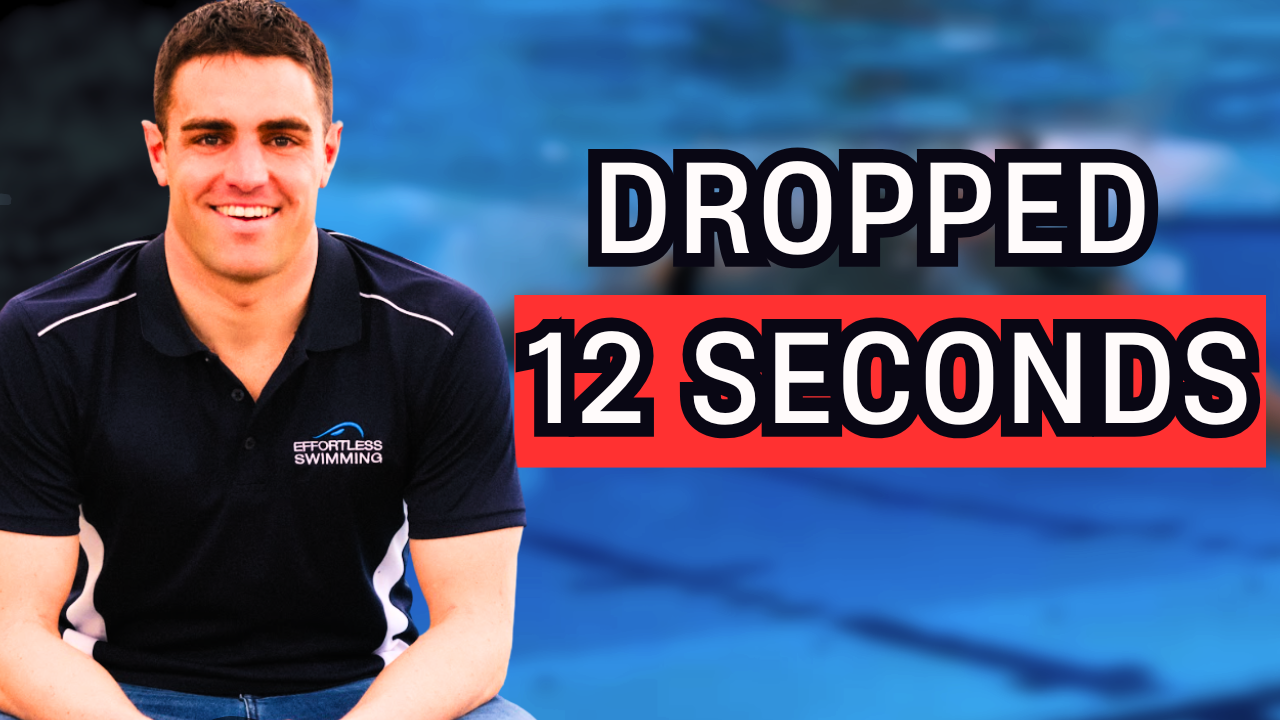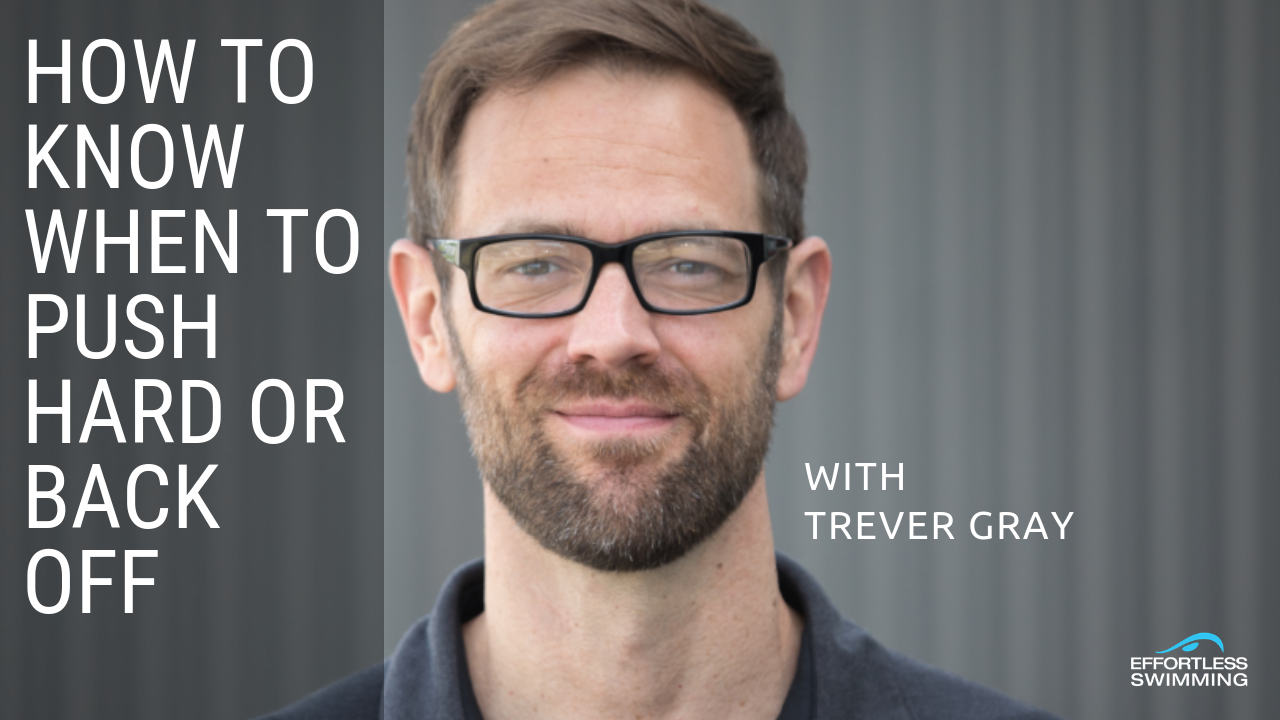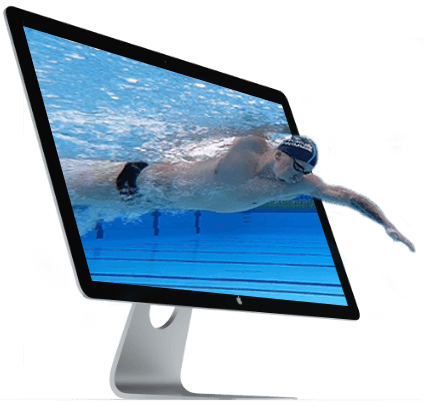Andre Obradovic joins us again in this episode as we talk about how to stop wasting your time and being more effective in your training.
00:53 Background on Being Productive
03:14 Structural Schedule
04:52 Today’s Plan Scheduling App
09:37 Factoring The Appointments
16:08 Sticking To It
17:08 Getting Back On Track
18:37 “I Can’t Do That, I Am Spontaneous”
19:02 Spontaneity
26:18 Being Conscious Of The Time You Are Wasting
28:35 First Steps
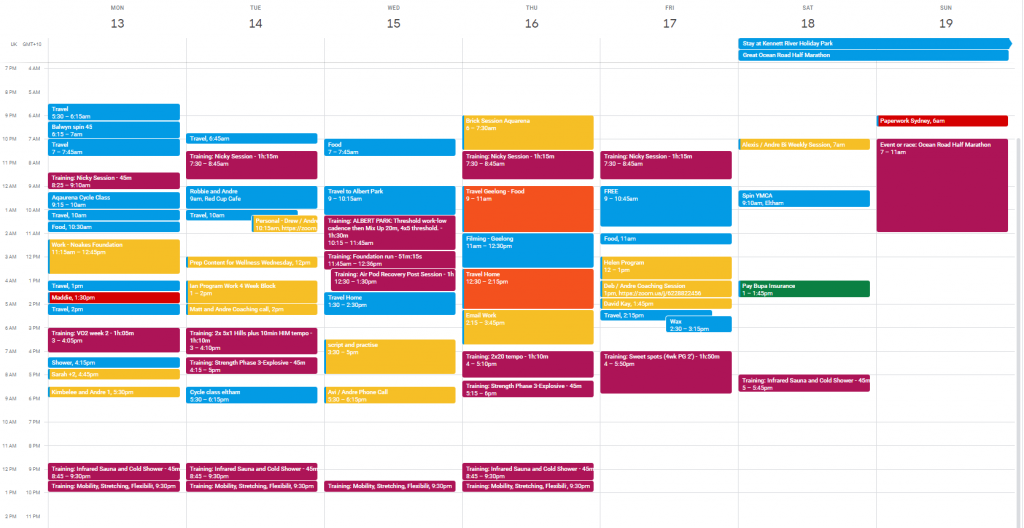
Andre’s Website:
https://andreobradovic.com/
Free Health App:
https://linktr.ee/andreobradovic
Transcription:
Andre Obradovic: Well, a couple of weeks ago, I took Facebook off my phone and that was phenomenal, and I’m not going to put it back on.
Automated: Welcome to the Effortless Swimming podcast, the show that helps swimmers and triathletes love the water, become a better swimmer, and live a better life. Here’s your host, Brenton Ford.
Brenton Ford: Welcome to the Effortless Swimming podcast, episode #131. my guest today is someone who’s been on a number of times, it’s Andre Obradovic. Andre, welcome to the podcast.
Andre Obradovic: Good day, Brenton. Hi, everyone. How are you?
Brenton Ford: Yeah, very good. Thank you. Our topic today is how people can stop wasting their time, they can get their training done that they set out to do, and how they can be more productive with their time. So, we’ve talked about a number of different things over the last, I guess it’s a couple of years since I had you on.
Brenton Ford: We’ve talked about sleep, we’ve talked about health, and now coming round to productivity. What is your experience in terms of being more productive? Because I know you’re very regimented guy and you have sort of, saying this, knowing you for the last couple of years, but what’s your background in being productive and helping other people with this?
Andre Obradovic: Sure. Okay. Well, I guess my background with being liking to have schedule was, I was in the military for 14 odd years and sort of, you never want it to turn up late for anything because there were severe consequences if you are late. Then, working in the corporate world, that sort of habit just went through. You’re always on tight timelines to get stuff done, everything was calendared, short meetings went over time.
Andre Obradovic: But as much as you could you sort of, or in my instance, I like to work with a pretty tight structure. So, I knew what was coming when I had to have work deadlines done. I find myself that over that, because I’m 54 now, right? So, I’m an old man. All of that life of having that structure has set me up now to really embrace having structure. I think it did, for me personally, it delivers a much better productivity; but importantly, because I train between 15 and 18 hours a week, it helps me be pretty much like 95$ or 100% compliant with all of my sessions that I set up and do.
Andre Obradovic: So, that’s sort of my background with structure and why it helps me both from a personal life because I run my own coaching business, whether it be triathlon coaching or marathon coaching or health coaching, so when you’re running your own business, as you know, there’s no one above you standing, cracking a whip, and there’s no “I’m going to tell you off if you don’t turn up to things. You just don’t make any money and you can’t buy food.”
Andre Obradovic: You’ve got clients to serve, and those clients don’t want you to be late and they want you to be on the ball and deliver for them. So in that instance, working for yourself, I find and training 15 to 18 hours a week, structures essential during the week. I sort of ease off on the structure a bit on our weekend, but we can talk more about that as well during the podcast, I guess.
Brenton Ford: So, what do you say is the typical structure or schedule or how do people typically plan their days or their weeks that you see when someone comes to you and they’re all over the place with their schedule?
Andre Obradovic: Well, it really varies. First of all, I think some people have structure and they use either- The thing that I say that I find isn’t very effective is where people have a paper diary, for example, their personal stuff, and then they’ll have work electronic calendar for their work stuff. So, they’re constantly juggling two different types of scheduling systems and invariably, that’s not very effective at all. So, I try and convince people to move to one system. And obviously, an electronic system, in my opinion, is far more superior, and having that system that it can work on a mobile device and a computer.
Andre Obradovic: Now, some people may be listening saying, “Well, shit. Doesn’t everyone do that?” Yeah, well I do, but I’ve got a lot of clients that still use a paper diary for personal stuff and a work diary for work and they haven’t thought about bringing things together. So when we make that shift, it does deliver less conflict, it delivers less noncompliance with training that they’re scheduling, but it also makes them less stressed because they’re not having to juggle two different things and it’s like they can look at one device or one screen and see what their day or week looks like.
Brenton Ford: And what’s your current system and what software do you use?
Andre Obradovic: Sure. Okay. Well, for my training, I use a system that’s built here in Australia called Today’s Plan. It’s a revolutionary multisport platform. For those triathletes that are listening that probably use Training Peaks, Today’s Plan is far more adaptable and flexible than Training Peaks. the reason I use that is it syncs straight into Google Calendar. So I use Today’s plan for all of my training and that’s what I use for all my athletes, and that can sync straight into Google Calendar.
Andre Obradovic: So, I use Google Calendar for all of my coaching work, and all of my training sessions automatically import in a different color, because you can set up the colors you want, so that when I’ve got my calendar open, whether it be on my phone or my computer and I’ll look at today or the week, I can see all the red sessions are all of my training sessions.
Andre Obradovic: If I go into Today’s Plan change your session from a swim that’s 3.6 K to 3.2 K, it automatically adjusts the times based on my threshold pace, and the way I’ve written a session, and it changes the time in Google Calendar; or if I drop a swim out from Wednesday and shift to a Sunday, once again, that frees up that time in my planning calendar with Google automatically. I don’t have to go in and reshape a whole lot of things.
Andre Obradovic: So, I use Google Calendar and I use Today’s Plan. Today’s Plan tech sessions come straight into Google Calendar and I can access that on my phone or my PC, and it’s very, very good for me to use.
Brenton Ford: One of the things that you do is pretty much schedule everything in your calendar day-to-day, and that’s travel, food prep, eating sessions, coaching. So, there’s almost not a minute there that’s unscheduled. Can you talk a little bit more about that?
Andre Obradovic: Yeah. Well, I’m not a very spontaneous person, much to my wife’s horror. I guess my situation is a little bit different in that my kids have grown up. So, I don’t have the constantly changing to look after kids and things. So for people that like schedule or think they could be more productive with schedule, my approach might be able to work.
Andre Obradovic: What that approach is that, as you say, yes, I schedule pretty much everything because for me, it helps keep me calm. It helps keep me less stressed, and I want to avoid as much stress in my life as possible so I can be as relaxed and calm and train well because I don’t need extra stress on top of training stress.
Andre Obradovic: So, I schedule when I’m going to eat. I schedule when I’m going to travel to the pool. I schedule when I’m traveling back from the pool, I schedule when I’m going to eat it, when I come home, even showering and changing, I build all of that into my schedule so that I know it’s not just like a swim for an hour and 15 minutes to do three point whatever Ks. It’s actually two hours and 10 minutes or whatever because I’ve got a drive to the pool, I’ve got to drive home, I’ve got to then get changed or showered. I may or may not eat.
Andre Obradovic: They’re the things that help us know, “Okay, I’m at the pool and it’s 7:30 AM,” because I swim pro hours. I don’t swim at 6:00 AM, lucky again, very lucky. So, I know that if my first client meeting’s at 10 o’clock, I then factor in all the things I have to do before that in my calendar and I can see it.
Andre Obradovic: So, I can be relaxed during the session knowing that the session will take me an hour and 20 and I’ve got time. I’m not rushing. I’ve got time to do the things I need to do to be sitting at my desk five minutes before my client meeting or five minutes before I have to get to work if I was working in an office. It doesn’t matter that I train at different times. Whether you have a normal job and you have to be in the car by 8:00 to drive to somewhere, this planning process I believe is even more critical. So, I basically schedule everything except for going to the toilet.
Brenton Ford: So, when you do schedule all of that in, you’re not making these sort of separate appointments saying, “I’m driving for 30 minutes, eating for 15 minutes,” it’s just structured into that activity. It’s an hour and a half swim will be two hours, 10 because you’re factoring in the travel time and those other things around it.
Andre Obradovic: Oh, that’s a great question, Brenton. I’m more than happy. I’ll give you a screenshot of the process I use in terms of my calendar if it might help people.
Brenton Ford: Yeah, put that up on the website, that’d be good.
Andre Obradovic: Yeah, yeah. Just to remind me to do that. So, no. The first step for me, so pretend that my training is my work, right? Because it takes up 15, 18 hours a day. So, I plan my work and that’s what I call my training in Today’s Plan, and I build those sessions around consistent times of the days and days of the week.
Andre Obradovic: As an example, and this speeds up the process of planning. So, I do a four week training block and I know that every Monday, Tuesday, Thursday, and Friday I’m swimming at either 7:30 or 6:45, or whatever time it is, and it’s the same for those four weeks predominantly and it rarely changes. The same with my bike sessions. I know that every Friday morning at 7:30, I do a bike session. So, I build the sessions in Today’s Plan, so I’ve got four weeks worth of training. They come into my Google Calendar.
Andre Obradovic: Then what I do, I close Today’s Plan and I get on Google and I’ve already got all my client meetings in. So, my other work where I make money, they’re pretty much in the Google Calendar already. My clients can book meetings with me in Google through Calendars if I’ve already got a training session or a client meeting booked. So, like if you’re at work, people can’t book a meeting with you if you have your permission set up properly, if you’ve already got a meeting in your calendar.
Andre Obradovic: So anyone that’s in a corporate world, so I do the same thing with my process is my training goes, in my client meetings that I’ve booked have gone in, client meetings that they’ve already booked go in, because they can’t overbook me. Then what I do is I sit and I say, “Okay, so on every Monday, I know that for the next four weeks, my training session starts at this time.”
Andre Obradovic: So then, I just make a reoccurring event. I don’t put my travel time and stuff in Today’s Plan. I put it in Google Calendar, but I look at the four week block and I say, “Okay for the next four weeks, I am doing the swim at this time on Monday and I am doing my gym session at this time on Monday,” and I just go in and make one entry for the travel and I make it a reoccurring event so it pops in for the next four weeks, and so on, and so on, and so on if that makes sense.
Brenton Ford: Yeah, that makes sense. And you also-
Andre Obradovic: It’s the same with feeding and eating, because I only eat twice a day because I low carb and I don’t need to eat more than that. So pretty much every day, I’m eating at 11:00, that’s my first meal. So once again, I go in on most days, depending on my training load, and I put in for four weeks, Monday to Friday, I put in a reoccurring event every day of the week, 11:00 until 11:45, eat. That just pops in and it’s in there for four weeks. If I have to make a variation, I can review it the week before and make some changes.
Andre Obradovic: Sorry to cut you off, Brenton.
Brenton Ford: No, no. Actually, just going off what you just said, so you look at it for four weeks-
Andre Obradovic: Yes.
Brenton Ford: Then, you’ll reassess it like a Sunday night. You’ll look at your week ahead and go, “Do I need to tweak it?”
Andre Obradovic: Yeah. Exactly. Yeah. Because I might have more clients that come on board or I might have a new client. I do knock back clients, but I’m not going to put my training in front of getting a new client, right? So, I might have to look at the week and say, “Okay, in fact, I’ve done that today.” I’ve started looking at next week and I’m doing some training sessions at Albert Park.
Andre Obradovic: Currently, my Wednesday bike session is in at 7:30 in the morning. Well I’m not going to be at Albert Park then. So, I thought “Right, I’ve got to snap next week and change things around a bit and shift it because I’m then going to go and have a cardio therapy session after that.”
Andre Obradovic: So every Sunday night or afternoon, what I do is I look at the next week and I do what I call a macro focus on that week and I compare it to my client meetings. But then, I also look back the week prior and I say, “Okay, did I have any non-compliances with training?” So, I open up Today’s Plan because I put notes in after every session. So if I was feeling crap after a session, if I was feeling great, if I wasn’t holding pace, if I was rushed, if I was stressed, I put that in the notes and I’ll put something like, “Got late to the pool, got stuck on on waste book or Instagram, wasted 15 minutes. Think about it next week.” Right?
Andre Obradovic: So, I look back at the previous week and say, “Where I screw up last week? I only had 90% compliance. What was the day I didn’t have compliance, what led to it?” Then for the session next week, I either adjust the timing or I put a note in my calendar saying, “Don’t be an idiot. Turn up on time or don’t take your phone.” You know? So, I know we can talk a bit about how to stop wasting time as well, but I find that very important to do that Sunday afternoon thing to re-snap the week because to help.
Andre Obradovic: Firstly, it helps you know that you’ve got your plan set; and secondly, it can help you sleep better on Sunday night because you don’t have all these things going through your head on Sunday night because you’re about to start the work week, and I know you and I have discussed that before about thinking about all these things that you have to do with work.
Andre Obradovic: I get in a process of I have dinner Sunday, come to my office, I said to my wife, “I’m going to be half an hour just setting myself up for the week.” I don’t go on social media, I don’t do any of that. I just do the calendar check in and I turn the computer off and I come downstairs, and that’s sort of like me saying, “Okay, work’s done for the week. I’m ready to start the next week.” I don’t have to go back tonight and think about it when I’m in bed.
Brenton Ford: Yeah. I’ve sort of been on and off with following this process and when I do it, and especially when I stick to it, it’s really satisfying. It keeps my mind at ease. The struggle I’ve had in the past is, is just sticking to it and setting aside sometimes 10 minutes to 30 minutes maybe for the week to structure it.
Brenton Ford: With my work, and with the young kids as well, some of that often gets pushed back or forwards, and some of these things get changed. I find that the biggest trouble for me is when that happens, when I’ve got something set for for two hours at 10:30 and I’m looking after the kids or something else comes up and then I don’t do that two hour block. I find it hard to get back on track for that day. So, what would be your solution or fix for that happening?
Andre Obradovic: It’s just thinking about the benefits that come from being more organized and how you feel when you have a good week. So, I sometimes sit and think to myself, “Gee, I’m spending a lot of time on my calendar and checking that I’ve got things organized and stuff.” And sometimes I do think, “Am I spending too much time doing that and is there a benefit?”
Andre Obradovic: But then, when I sit back and look at my training sessions and that 100% compliance week after week, or the fact that I’m getting eight hours’ beautiful sleep every night and I’m relaxed, I think it, for me, it’s an important tool. I’d be saying, if you are feeling that you have a better week when you make that 20 minutes to plan and structure, then maybe you should actually do it more often.
Brenton Ford: Yeah. I think that’s a fair assessment because I certainly find when things aren’t set in that in the calendar, they either don’t get done or they just get pushed back and they take longer. It’s definitely something that’s worth spending that time planning. So, yeah. What would you say to someone who would look at your calendar, and they’ll see it on the website, and they’ll say, “I can’t structure my every single minute there because I’m more spontaneous. I want to be able to do things on the fly.”
Brenton Ford: Can they structure in free time or can they structure in going to the movies or time where there’s nothing set? What’s your recommendation for people who feel like they want a bit of spontaneity in their week?
Andre Obradovic: Well, I do that. Don’t take it that by saying I structure everything in my day, doesn’t mean I have times where I don’t have anything in there. So as an example, I had an hour today in the calendar free before you and me speaking, and I went and sat down by the fire and had to think about what we were going to do. That wasn’t in the calendar, it was just an hour block that was free. So, that’s the first point.
Andre Obradovic: The second point is, I try and have nothing in their calendar on the weekend apart from sometimes I’ll do maybe one client meeting for someone who can’t meet during the week, and then I train on a Sunday. So, that is in the calendar. But apart from that, I don’t put anything in an electronic calendar for the weekend. I use a totally different system so I’m not feeling like I’m at work on the weekend.
Andre Obradovic: So, I use an old fashioned bit of paper. And on Friday night what I do is I sit down with my wife and I say, “Okay, these are the things” and I just sort of rule it into Friday and Saturday, old fashioned notepad and I just say, “Okay, I’ve got three hours of training on Sunday. I’ve got to teach a class on Saturday morning.
Andre Obradovic: Other than that, my times, hours, what do you want to do? What do I need to do for you? What do I need to get done at the house?” If we had kids, I’d be like, “Who’s taking the kids to football?” And then she’ll say, “Well, I’ve got stuff I need to do on Sunday morning, so can you train Sunday morning and then we have the afternoon together?” And on the sheet of paper, I just draw that up and I’ll leave it on the kitchen bench.
Andre Obradovic: So, that is about as spontaneous as I get. But back to your sort of question about what other people can do is, I would say when you planning in your calendar, one thing you could do is color code things. So, that’s why I use Google, it’s very good for that as well, is just right clicking and color coding what I would call really important activities and things that are not a high priority.
Andre Obradovic: And if you need to shift things, the things that you need to shift or make room for other things are those ones that aren’t a high priority. It’s a similar concept to key sessions, routine sessions, or optional sessions with your training. So if your listeners think that every session is a critical or a key session in their training, if they’re a triathlete, well that’s probably the wrong approach.
Andre Obradovic: So, even though I, and generally 100% compliant, if I feel like my week is chocking up and I need to drop a session, I have sessions in my plan that are critical key sessions that I must do and then I have sessions that I can drop out. You can take the same approach with things in your life as well, but I would always advocate having spare time in the calendar and it’s actually blocked as free time.
Andre Obradovic: So if you’re getting a bit stressed or a bit anxious about getting shit done, you actually allocate maybe towards the back end of the week, and this is what I do on a Thursday and Friday. I allocate time that’s just like blocked where clients can’t book me and it’s just a gap in the calendar that if I need to catch up on things or if I want to go for a walk or do something spontaneous, even though it’s sort of maybe not spontaneous because you’ve already got the time blocked, it’s more like here’s some downtime where I can do other things that aren’t necessarily in my calendar that have come up during the week. Does that sort of answer what you’re after?
Brenton Ford: Yeah, that’s good. That makes a lot of sense. I guess we’ll see color coding with the screen grab of your calendar. Is there a particular method or how do you color things with each aspect of your life?
Andre Obradovic: Oh, okay. Well, my training is all red, my client meetings are all yellow. Anything that involves sort of like business stuff, as in meeting with people about business, I color code in orange. Downtime, I usually color code in green. Finances and personal admin, I color code blue. So, I sort of just have a scheme so I can look at the week, I can actually look at the weekend say “Wow, there’s a lot of blue” or “There’s not much of green here.” Or like a couple of weeks ago, my program was pretty much client meetings back-to-back. I’m like, “Wow, that’s a lot of client meetings this week. I need to get a bit more balanced.”
Andre Obradovic: So whatever works for people I think, because I’m a visual person so I like to look at it and see how much training time there is, how much downtime there is, et cetera, and I use that color scheme and it sort of works for me.
Brenton Ford: Yeah. What are some things that you’ve done yourself to stop yourself from wasting time on social media or other things that you find are unhelpful in working towards the goals and the targets that you set for yourself?
Andre Obradovic: Okay. Well, a couple of weeks ago, I took Facebook off my phone, and that was phenomenal. I’m not going to put it back on. That’s the first thing. The other thing that I’m going to do is I’m going to allocate time because I have a business email and a personal email. So, I’m going to actually allocate time each morning to do personal email, like 10 minutes in the morning and then at the end of the day, and I’m not going to look at my personal email apart from those times. So, that’s something that I’m doing.
Andre Obradovic: When I’m sitting at my desk working on important stuff, I will often turn my phone off because if the phone’s on and I get a bit distracted or bored, I’ll pull the phone up and start looking at LinkedIn or Twitter or Instagram or whatever. So by turning the phone off, sure, no one can ring me, but that’s alright. There’s a thing called voicemail and no one, apart from my wife and kids, no one else is that important that has to get to me every five seconds.
Andre Obradovic: So, scheduling when I’m going to do personal email, but also, I’m also going to schedule when I’m going to do social media stuff. Now one way to do that is by using a scheduling tool because I run a business, but most people won’t. So if you’re just a normal person, I would suggest thinking about when you’re going to deliberately make a choice to waste time, and that means social media, right?
Andre Obradovic: Now, I’m not judging anyone, I’m on social media heaps. But one thing a mate of mine, Andy, has done is he has made a folder, I think you call it on your phone, and it’s called Wasting Time and he’s put all of his social media apps in that folder. So when he grabs his phone, he has to press the thing that says “Wasting Time” before he goes into social media. He says it’s made a huge difference to him because he sees that and he’s like, “Do I really want to waste time?” So, that’s something he’s done.
Andre Obradovic: I think for me, it’s been being conscious of the time I’m wasting, always having my calendar open because I have three 24 inch monitors on my desk, so having my calendar always open on the left hand screen with a line running down it in Google telling me what time of the day it is and where I’m at to make sure I’m sticking on track and I don’t get distracted, and just being present and thinking about, “Am I bored or am I on task, and how am I going to feel if I get all this stuff done that I have to get done today?”
Andre Obradovic: I guess the last one is, and I see this all the time, going to the gym or the athletics’ track or the pool and sitting in your car. “Oh, I’ll just check my phone before I go and train.” So, you and I have talked about this before. In winter last year, I hated swimming in the cold and I used getting on the phone. “Ah, look, I’ll just spend another five minutes here, five minutes here looking at Facebook or Instagram or doing emails.” Then all of a sudden, I’d only have 30 minutes to swim. I’m like, “Ah, I’ll just go and jump in the spar instead.”
Andre Obradovic: I was being a lazy shit. What I do now is when I’m going to the pool, I often won’t even have my phone on. It’ll just be in the car off in the glove box or in the console. Then when I get out of the pool and in the car, I’ll turn the phone on and it’ll automatically sync my Garmin data while I’m driving home. For me, that works really well as well. Turning the phone off before you even get to the pool so you’re not looking at that final like on Facebook, even though I don’t have Facebook, or answering that email that’s not important. You know what I mean?
Brenton Ford: For someone who’s listening to this, they are thinking, “This is something that I’d love to love to try and I think it could work for me.” What are the first couple of simple steps that people can do to start running their life this way?
Andre Obradovic: The first thing is if you’re running two calendars, paper one and an electronic one, think about how you can use, and I’m assuming most people work, think about how you can integrate your personal things into your work calendar. There are tools that allow you to lay Google Calendar into Microsoft and Apple Calendar systems that they have. I used to have do that when I had a real job. Or, there are plugins that let you have a shared calendar.
Andre Obradovic: So, that’s the first thing I’d think about. Or if you can only use a work calendar, use a work calendar and put your own personal things in there and make them private so people can’t see what you’re doing, but you can see it all in one device. That’s one suggestion. Get off two devices or different systems because it can lead into a whole lot of extra stress and mucking around. That’s the first thing.
Andre Obradovic: The second thing I would suggest is if people are wanting to be more organized because they’re not being compliant with their training, I’d sit and do some reflection on what is it that’s stopping them from making their sessions. Are they regularly missing specific sessions every week or is it once in a while, and what’s that about? Is it that they’re too fatigued? Is it that they haven’t had a good sleep? Is it that they screwed up their calendaring and I forgot that I have a work meeting?
Andre Obradovic: What is it about that? Or is it they’re not motivated? Now if they’re not motivated, maybe it’s because they’re training too hard or they got too much stress in their life. So maybe, cutting one swim out of the week. “God, oh my God. Everyone’s saying this guy’s an idiot,” but yeah, trust me. Cutting a swim out of your week or cutting or run and being less stressed might help you perform better is actually having a look at what’s causing that to happen.
Andre Obradovic: Because it might not be a technology issue with a calendar system or not knowing what you’ve got happening. It might be motivation, it might be stress, it might be not liking the group you train with, it might be a sessions aren’t challenging enough. You’re not making progress. It could be a whole lot of things. That’s from a training point of view, Brenton.
Brenton Ford: Yeah, that’s really good. Any final words or words of advice for people who are sick of wasting time and they know that they can do a lot better?
Andre Obradovic: Right. Maybe write down how you feel, how you feel about the time you’re wasting. How does it make you feel that you’re wasting the time? And if you think you’re wasting time and you’re frustrated by it, that’s a good thing that you actually acknowledge it. So, write down on one side of a page of paper write “Today” on the current situation, and then write down words that describe how you feel because of this issue of not doing sessions or wasting time or procrastinating, or whatever it is.
Andre Obradovic: And then on the right hand side, what you want to do is say “Future” and write down how you want to be, not how you should be or you need to be, but how you want to be, how you want to feel, whether it’s productive, whether it’s hitting the numbers, nailing a sessions, feeling relaxed, not feeling stressed. Having those words written in a positive tone, not a negative. So you don’t want to say, “Not tired,” you want to say “Energized, feeling really well.”
Andre Obradovic: Look at those two and then, get another sheet of paper and say, “Well, these questions, what’s holding me back? What’s the one or two things I can do this week to make a change? How will I feel at the end of the week when I’ve made those changes?” Just those three questions can open up a light bulb moments or insights for people to actually realize that making a change can help them be more efficient, more effective, be more relaxed, be more calm.
Andre Obradovic: And as I said, sometimes that means we need, as an athlete, to take a critical look at ourselves, and if we have a family and a busy life, is maybe sometimes we’re putting too much of a focus on our training. Maybe we could be more benefited by putting more time focusing on our family or our kids by doing less training, but making that training more effective because you’re nailing it and you’re hitting the numbers instead of going backwards in your training.
Brenton Ford: Yeah, it’s a good way to look at it. I know we’ve done that exercise in the past and it’s been really useful to just sit and reflect on what’s going well, what can be improved. Then, actually spending the time to dig a bit deeper into some of the feelings you might have towards yourself, or the way that you’re doing things, or what’s the actual cause behind some of them?
Brenton Ford: Because often, the problem you think you’ve got isn’t the problem. It may not be that you’re not scheduling your week right. It’s most likely something a lot deeper than that, about how you feel towards your training, or your job, or other things like that; and that’s something that I’ve found that you’ve been very good at asking the right questions to uncover that. Those questions that you just mentioned, some of those.
Brenton Ford: So, it’s really helpful to sit down with the right person and have them ask you questions with no judgment behind it, and just exploring those different things. So, I’d like to thank you very much for being on the podcast again. Where can people get in touch with you and find out more about what your currently up to and how you can help people with their training in their health and life?
Andre Obradovic: Great. Thanks, Brenton. Well, andreobradovic.com’s my website. I have a health and wellness app as well, which at the moment is free. They can download that by just searching my name on the Apple store and the Google Play store, Andre Obradovic. The app has a lot of content, recipes, podcasts, videos that come out every Wednesday.
Andre Obradovic: That is something that is probably the best way to connect, and I’ve just made some changes on that that’s going to be effective later this week where they can actually chat with me in the app to ask questions instead of being on Messenger. Because once again, I’m actually probably going to get off Messenger 100% as well.
Andre Obradovic: If people want to work or ask questions with me, it all comes through the app. So, they’re probably the two best ways. I’m all over Instagram. Instagram, LinkedIn if you’re more professional website. And if people are interested in working with me, I have a process where they fill out a survey around the three areas that I focus on. One being a body composition, the other being sleep, and the other being a endurance coaching using my approach, which is a bit different to most coaches.
Andre Obradovic: So, they’re the three areas that I focus on and I’d love to hear from people if they need a hand. And if not, I hope what we’ve gone through today, helps people make some changes. And then obviously, if they sign up to next year’s Hell Camp in Thailand, they’ll get to meet me because this year’s is fully booked out, I’m sure, already. So, the people that are listening for this year’s Hell Camp, I’ll be there and we’ll be smashing it in the pool together. But yeah, my website and the app are probably the best ways to get in touch, Brenton.
Brenton Ford: Yeah. Fantastic. We’ll have all those links on the website, effortlessswimming.com, and I’ll also have a screenshot of your calendar so that I’ve got a bit of an idea of the way you currently run it. Hell Week’s booked up for this year, but I was just thinking about next year’s camp and looking at the dates.
Brenton Ford: It’s going to be a lot of fun and always look forward to Hell Week over in Thailand. It’s a big week for the people participating, but it’s those sorts of weeks that really make it worthwhile. We’ve got so many people returning, which is awesome. I think more than 50% of the people coming back. So, I can’t wait for it and thank you again for being on the podcast.
Automated: Thanks for listening to the Effortless Swimming podcast. If you’d like us to help you become a faster, more efficient swimmer, go to effortlessswimming.com.









